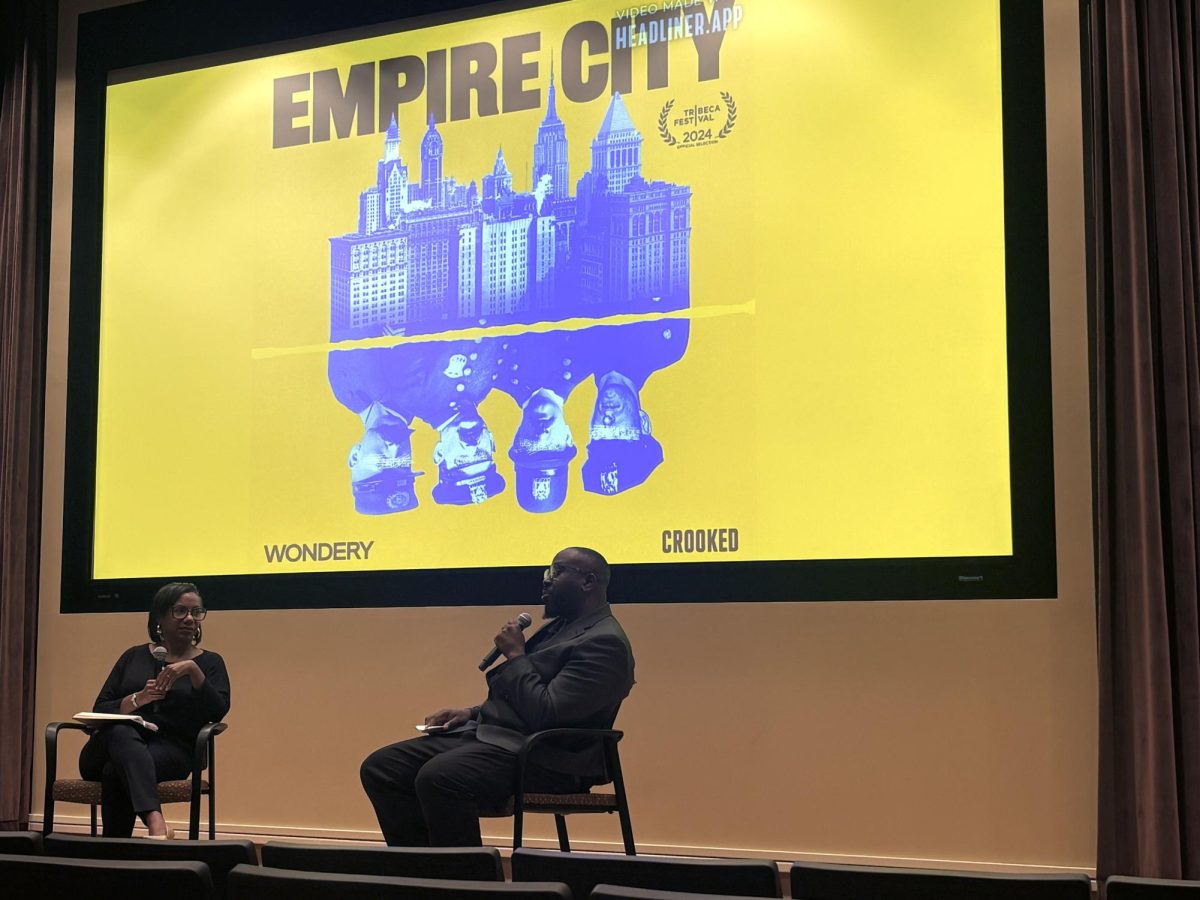Chenjerai Kumanyika had never seen a video of his father before. That was until he started researching the origins of the police institution his father had fought against for years.
The School of Communication’s Master of Arts in Sound Arts and Industries program hosted New York University Prof. Kumanyika in collaboration with the Medill School of Journalism on Friday to discuss his creative and technical processes as an audio journalist.
Kumanyika recently created and hosted the eight-part podcast “Empire City: The Untold Origin Story of the NYPD,” first published in September 2024. The podcast details a “people’s history” of the New York Police Department, exploring both the economic impetus and resistance forming a police institution in the 19th century.
“The biggest challenge was narrowing down the history,” Kumanyika said.
Before publishing “Empire City,” Kumanyika co-created and co-produced the Peabody Award-winning podcast “Uncivil,” which focused on overlooked stories from the Civil War. He now teaches audio journalism at the Arthur L. Carter Journalism Institute at NYU.
Medill Prof. Natalie Moore moderated the discussion on Friday. She began by asking Kumanyika about finding his podcasting voice. He cited the hip-hop genre as a source of inspiration for oral storytelling.
Kumanyika also discussed the personal aspect of podcasting. “Empire City” features impromptu recordings of his then-four-year-old daughter asking questions about the police, as well as stories of his late father’s experiences as a civil rights activist.
He said that while audio journalism as a format allows reporters to bring in personal ties to the story, it’s important to identify “genuine stakes” in the real world to avoid self-indulgence. For him, he said his struggle to approach the topic of policing with his daughter invested him in the topic.
Near the end of the talk, Kumanyika shared data visualizations that demonstrated how crime coverage in the media can perpetuate harmful police influence. One infographic explored how media outlets tend to over-report crimes typically handled by the police, like theft.
The event was a continuation of an annual collaboration between the School of Communication’s Sound Arts and Industries program and Medill to bring in speakers who can highlight both the technical and journalistic aspects of the podcasting format.
“The idea is to bring together journalism students and sound art students, both of whom work in the podcast medium, but on different sides of it,” said Communication Prof. Neil Verma, who introduced Kumanyika and Moore.
Verma said listeners often underestimate the work that goes into podcast production, and he said he hoped attendees would recognize the effort that went into “Empire City.”
Communication graduate student Ruby Sigmund said she was drawn to the event as someone interested in pursuing documentary radio.
“I got more insight into the perspectives and processes that went into finding people, pitching it, working (and) collaborating in a podcasting environment,” said Sigmund.
She also said she appreciated the unique format of “Empire City” with Kumanyika simultaneously playing the roles of host, narrator and stakeholder.
After the discussion, Kumanyika said journalists covering policing may be susceptible to police propaganda because of the demand to put out stories quickly. When journalists are under pressure to publish, they might not think critically about information provided by police departments’ PR teams, he said.
“I think there (are) lessons to be learned about how journalists and their organizations can build the power to say, ‘If we want to do this right, we might have to slow down,’” Kumanyika said.
Email: rubydowling2028@u.northwestern.edu
X: @rubywright0
Bluesky: @rubydowling.bsky.social
Related Stories:
— Creating a ‘safe space’: Former journalist Brandon Saho talks mental health battle
— School of Communication, Weinberg and Medill faculty join forces to launch new graduate program
— SESP professor’s podcast collaboration bridges academia and comedy







